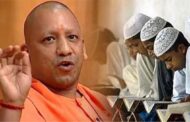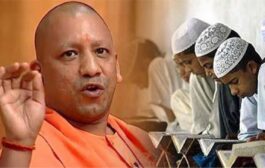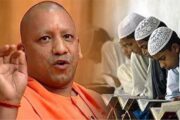The Government is fast tracking a new Parliament building even as it reduces the institution to insignificance, denying people’s representatives to even speak on public issues

India’s spectacular success in reducing the Parliament to insignificance is partly responsible for the country slipping on democracy indexes. While the Union Government is fast-tracking construction of a grand and in its own vision a more magnificent building, Parliament itself has regressed to a rubber stamp. Even as the number of MPs is all set to increase, MPs themselves are increasingly becoming puppets or mere pawns.
What Indians see is erosion in the country’s democratic aspirations and pretensions. The only function of the Indian Parliament now, it would seem, is to provide the government with a fig leaf of legitimacy.
The Indian Parliament has been dysfunctional for some time and its growing disconnect with people has been visible for a while. The situation has now reached such a sorry pass that the vast majority of citizens seem to be indifferent to what is happening in Parliament and what is being done to it. Indeed, even as India celebrates 75 years of Independence, many if not most citizens seem to have only the foggiest of notions about its function. Many seem to nurse even a degree of contempt.
While media must bear a significant part of the responsibility, the present government has gone to extraordinary lengths to muzzle the voice of the media and the opposition. Arbitrary Covid-19 restrictions have been used diabolically to bar the media from the ongoing winter session of Parliament. Permission has been denied to the opposition to hold rallies on similar excuse. But Covid restrictions have of course never come in the way of political rallies by the ruling party or the Prime Minister. While the PM says his government is ready to discuss everything, no discussion has been allowed on inflation, unemployment, farmers, economy, the Chinese aggression or the Covid mismanagement.
The only explanation for this strange behaviour appears to be that the government is determined to establish a one-party rule.
To place the obvious on record, in the last three decades the opposition has never been as fragmented and numerically as weak in Parliament as it is today. Even when the Congress had a brute majority in the Lok Sabha between 1984 and 1989 with over 400 members in the House, the numerically insignificant opposition was not muzzled as they are being muzzled now. In the mid-eighties the numerically weaker opposition was able to corner the government repeatedly in Parliament and also took their protests to the street.
But in 2021 we are witnessing a supposedly strong government with a brute majority in the lower House repeatedly stalling Parliament. Bills, even with glaring mistakes and flaws, are being passed in a matter of minutes without any deliberation or scrutiny. The Government is being repeatedly accused of misleading Parliament.
Curiously, it was the late BJP leader Sushma Swaraj who had famously said that ‘not allowing Parliament to function is also a form of democracy’. Now deceased BJP leader Arun Jaitley had also concurred and said that disrupting the Parliament was a legitimate and ‘very important work’ of the opposition. Now even as a ruling party, BJP’s old habits show no sign of dying.
What options do the opposition have? Boycotting the Parliament may still not be one of them. But time is clearly running out and if the opposition do not want to be completely sidelined, they need to think of mounting a more robust defence of democracy. While elections are important, the structural and systemic weaknesses of Indian democracy require more attention than ever.
HERALD VIEW
(This article was first published in National Herald on Sunday)







































